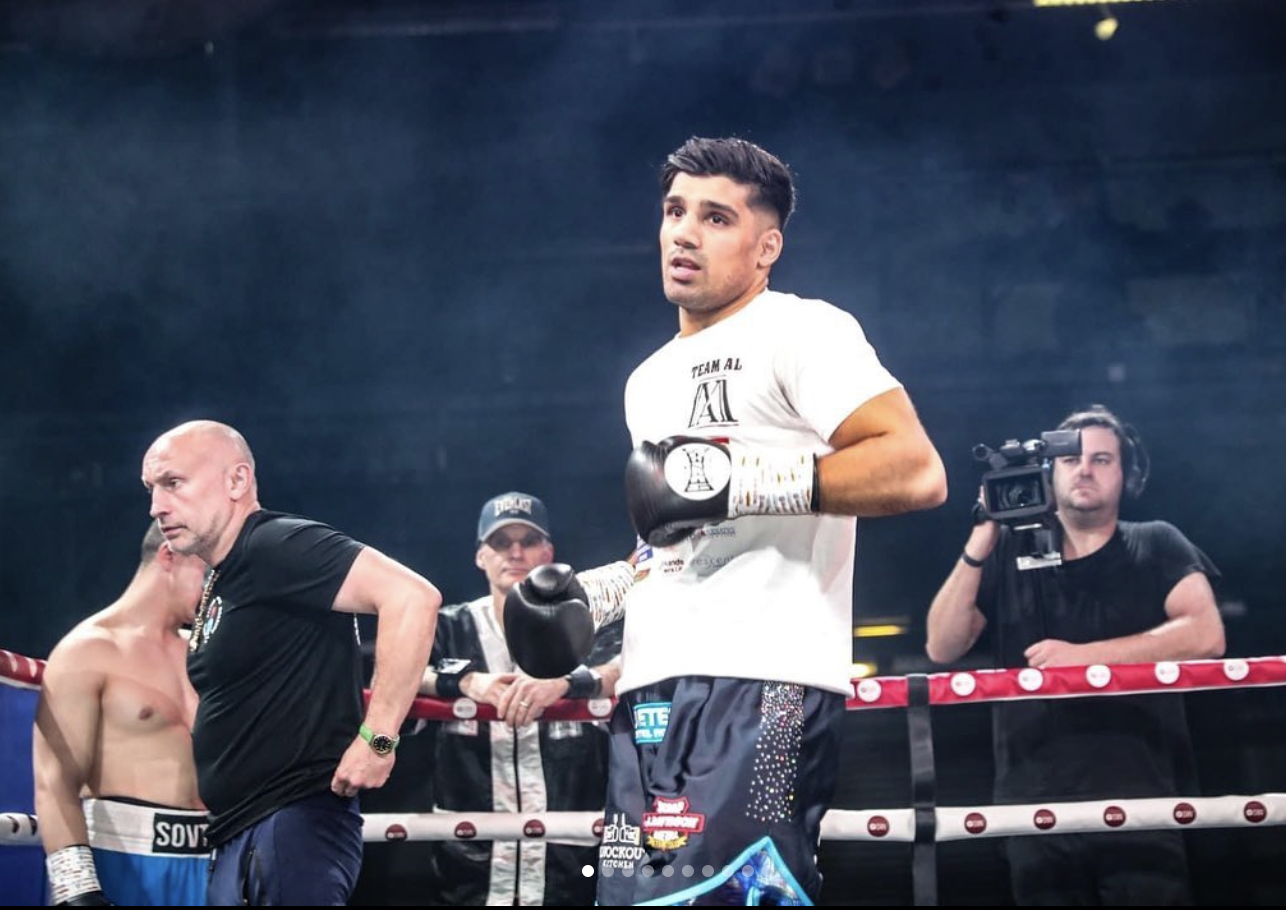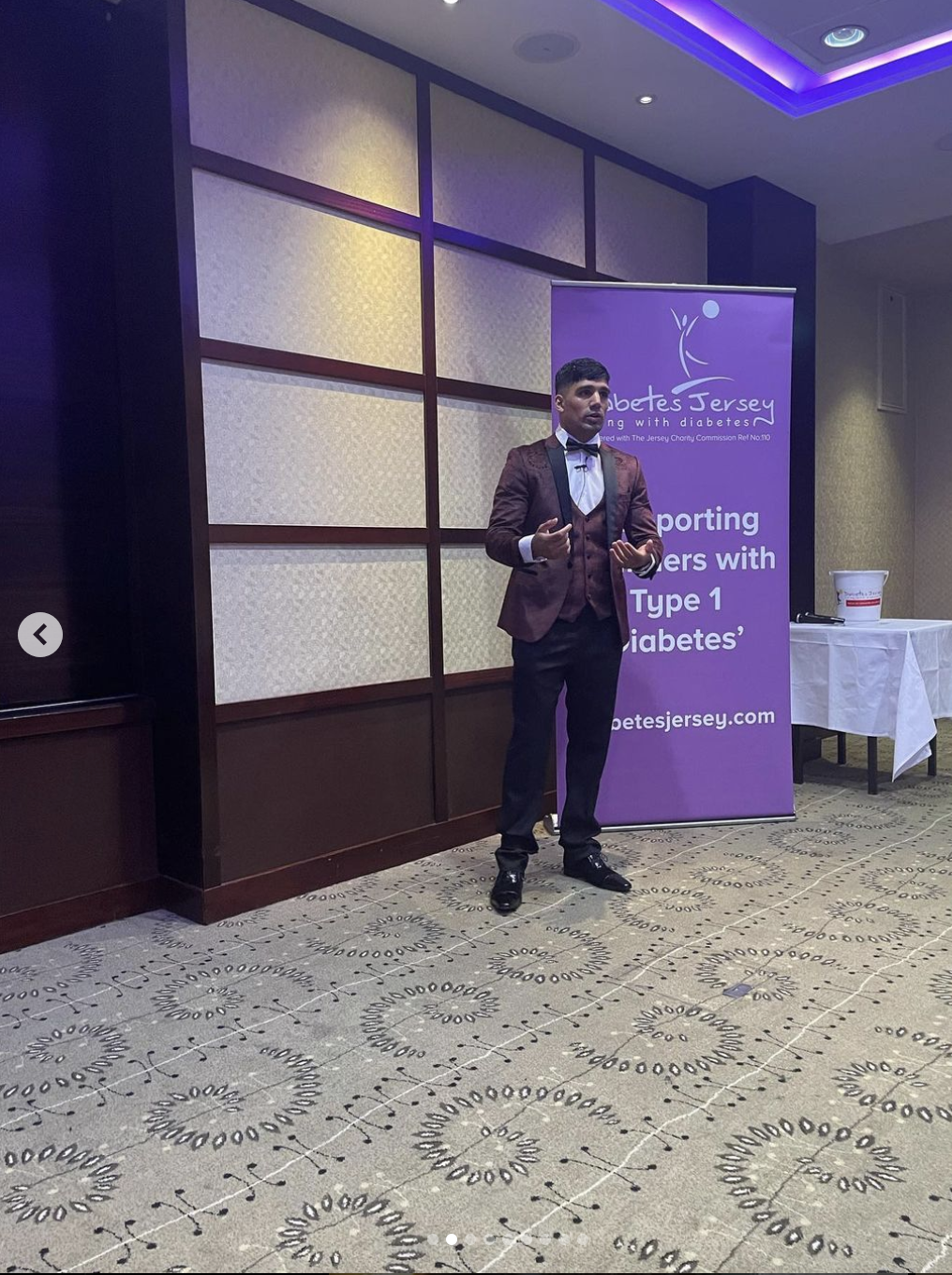“Within the word impossible is possible” – The story of the first Diabetic boxer.
November 14th represents an important day in my calendar. November 14th being World Diabetes Day, and as a type 1 diabetic, it’s a day that’s filled with awareness being spread about the chronic condition. What it is, what the symptoms are, how it is treated.
A recent survey from Diabetes UK has shown that over 5 million people live with the disease in the UK alone. So why was it, when I was growing up, that I could never find athletes in my favourite sports who were like me? Role models that would educate people in the same way I would if anyone asked me questions?
These people are out there. Cricketer Jordan Thompson. Real Madrid defender Nacho. Olympic gold medallist Sir Steve Redgrave. All these gentlemen have overcome the struggles diabetes represents to succeed at the highest levels. However, many would argue that they haven’t had to jump through as many hoops as Muhammad Ali Zahid.
Ali became the first diabetic professional boxer in 2018. Yet his story is one that has been marred by roadblocks and discrimination.
His story began when he was diagnosed at just 5-years-old. In the days leading up to the discovery, Ali had lost a lot of weight and was suffering with a rather innocuous symptom that is common with many diabetics.
“I was urinating a lot,” the undefeated fighter revealed when I went to speak to him in Rochdale. “I was drinking and drinking and just living in the toilet.” What he didn’t know at the time was that his unclenched thirst was as a result of high blood glucose levels due to not being able to produce his own insulin.
The news of the diagnosis turned Ali and his family’s life upside down. The years that followed led to several moments of feeling isolated and being treated differently from everyone else. He told stories of not being allowed to go on school trips without his parents coming with him and not being allowed to drink milk in class like the other students.
“I felt as though I wasn’t fitting into the crowd then. I didn’t understand why I had to be treated differently. Why did my parents need to come with me on trips when no one else’s needed to?”
One thing that Muhammad’s parents made sure he didn’t miss out on was sports. He participated in various team sports, but he didn’t enjoy the disagreements with his teammates. He needed an individual sport. This led to him finding karate when he was 12 and later falling in love with the sport of boxing.
Once it became apparent that the Rochdale native had the talent to compete at a very high level, he was presented with his first obstacle in the boxing world when his amateur license was rejected. Not willing to take no for an answer, Ali enlisted the help of famed amateur coach Mick Jelley, who agreed to help him get his license.
Once he was able to do this ‘the diabetic kid’ found himself winning fights and tournaments, including the Haringey Box Cup which the likes of Chris Eubank Jr, Anthony Yarde and Anthony Joshua all won in previous years. With amateur success building up, the decision was made in 2015 to make the move into the professional ranks.
Having passed his medicals in the build-up to his debut, Ali would receive a letter that would bring everything to an immediate halt. The British Boxing Board of Control rejected his application for a professional license, citing his diabetes as the reason why.
“I was devastated. It was heartbreaking,” the 30-year-old disclosed. “Due to you being a type 1 diabetic we can’t grant you your license. A one line sentence. No scientific reasoning behind it.
“It made me feel like I didn’t fit into the crowd. That’s how I took it. People were telling me ‘that’s discrimination, you should have your license.’”
Ali knew that challenging the British Boxing Board of Control is not something that had a high success rate. However, two decisions were proved to be imperative for his boxing future.

Firstly, a pessimistic Ali was put in touch with Dr Ian Gallen. Gallen is an expert in working with diabetic athletes. He was of the opinion that the boxer should be allowed to compete and began to work in proving that. This was followed by a staged protest outside the Principality Stadium the night of the Anthony Joshua unification clash with Joseph Parker. People began showing support for Ali’s story and this got the attention of the head of the BBBofC, Robert Smith. This led to a meeting taking place the following week.
“We went to Cardiff for the meeting. It was me, Dr Gallen, my dad, my solicitor and my advisor. There were five or six of them [members of the board].
“I’ve got my diabetic consultant, Dr Gallen there. The board have a facial doctor arguing that I shouldn’t have a license. A facial doctor, talking about diabetes.
“Dr Gallen doesn’t hold back. He asked the doctor ‘what do you know about type 1 diabetes?’ He said ‘I don’t know.’”
Despite this ignorance being shown by the board, they were steadfast in their decision. The reason given was that the fighter could not take off his gloves in order to complete a finger prick test in between rounds to check his blood sugars. However, by this point, technology evolved and the BBBofC were living in the past and not up to date.
Ali revealed his Freestyle Libre, a continuous glucose monitoring device which works via Bluetooth. By scanning the Libre with a handheld device, he had access to his blood glucose reading without having to draw blood from his fingers.

After seeing this, Smith immediately changed his tune. Ali was granted his professional license, making him the first type 1 diabetic boxer in the history of the sport.
As he begins to prepare for his next fight at the turn of the year, the 10-0 fighter detailed how he keeps his condition under control during training camp.
“On a normal day, I take 1.5 units of insulin for every 10 grams of carbohydrates I consume. When I’m in training camp, I start off at 1 unit for every 10 grams and as my weight continues to drop off, the amount of insulin will keep reducing as the fight gets closer.
“I’m always getting in touch with my consultant and he is always advising me.
The super welterweight is on now on a mission to bring as much awareness to the condition as he can through the sport of boxing, as well as inspiring others. Having had to take a two-and-a-half-year break from boxing due to being more at risk of the dangers of the Coronavirus, Muhammad is fully focussed on representing the diabetic community as a champion.
In achieving this, the British-Pakistani fighter will be living proof of the message he feels most strongly about.
“Don’t give up on your dreams. Everything’s achievable. I wasn’t granted my license, I sought the right help and stayed patient and here I am now.
“Within the word impossible, is possible. So, don’t give up on your dreams.”